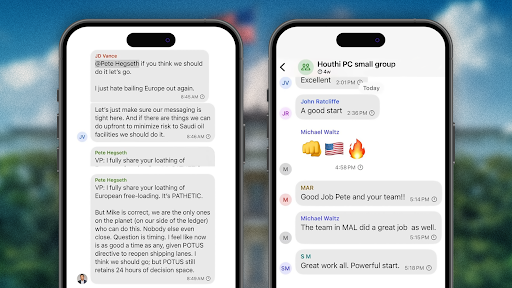On February 16th, 2024, the Alabama Supreme Court issued a decisive ruling in LePage v. The Center for Reproductive Medicine that will impact the future of reproductive rights and technology for the entire United States. The court declared that embryos created through In Vitro Fertilization (IVF) and held in a cryopreservation tank are legally equivalent to living children and that their destruction is considered the wrongful death of a minor. (John Hopkins Bloomberg School of Public Health).
This decision follows a conflict between three couples who all underwent IVF treatment at a fertility clinic in Alabama. All three couples gave birth to healthy babies through the IVF treatment they received. According to JAMA Network, “Typically, approximately 3 to 4 embryos need to be created to get a single pregnancy, depending on patient age, the need for genetic testing, and other factors. The field of reproductive endocrinology and infertility has moved away from transferring multiple embryos at once due to the increased risks associated with twin and triplet pregnancies for both the pregnant person and the fetus. To avoid those risks, patients with multiple embryos available for transfer freeze additional embryos for future use. If the patients decide not to use their stored embryos, they are—at present—given the option to donate them to another couple, donate to research or for training clinicians, or discard the embryos.” (JAMA Network)
In December 2020, a patient entered the fertility clinic’s cryo-preservation unit and proceeded to pick up, drop, and shatter one of the frozen embryos. The couples brought lawsuits against the fertility clinic and the hospital, both for “negligence and wantonness,” and for the Wrongful Death of the Minor Act, which is an Alabama statute. (JAMA Network).
According to John Hopkins Bloomberg School of Public Health, “At the trial court, this case was dismissed; the trial judge stated that embryos that exist in vitro are not people or children for the purposes of the Wrongful Death of a Minor Act, and therefore there was no claim that the couples could bring under that act.” The couples appealed that decision to the Supreme Court of Alabama, the highest court in the state. The Supreme Court disagreed and, in a nutshell, said that the Wrongful Death of a Minor Act does apply. This is a brief quote: “To all unborn children without limitation. And that includes unborn children who are not located in utero at the time they are killed.” So in fact, the Alabama Supreme Court determined that these in vitro embryos are declared personhood, so they are children or people, and the couples can therefore proceed with their lawsuit. They are seeking punitive damages for what they say is the wrongful death of their children.” (John Hopkins Bloomberg School of Public Health). Megan Hagy, a sophomore at Ramapo, commented that she “understood the pain that the couples must have been feeling, and wasn’t sure what she would have done in the same situation.”
This law was passed to provide civil and criminal immunity to providers and patients for the destruction or damage of embryos. (CNN) Many, however, claim that this ruling was not a constructive solution to the discussion of the personhood of IVFs, but, according to The Alabama House Democratic Caucus, a “short-sighted” response that “does not adequately address the many legal questions of embryonic personhood, nor the serious consequences of the unprecedented and dangerous Alabama Supreme Court ruling” (CNN).
This is the first time the definition of children has been applied to an embryo in a lab. The ruling of this case poses possibly disastrous consequences to the future of female reproductive rights. Since then, Alabama fertility clinics have paused the offering of IVF treatments as well as shipments of embryos out of the state (JAMA Network). However, as of recent news, “Providers in Alabama are resuming some in vitro fertilization services Thursday, the day after the state’s Republican governor signed a bill into law aimed at protecting IVF patients and providers from the legal liability imposed on them by a controversial state Supreme Court ruling.” (CNN) This law does not, however, protect the issue of personhood regarding IVFs, nor does it nullify the court’s analysis that the laws ought to treat embryos as children.
Why is the availability of IVFs important?
Embryo cryopreservation is a necessary step in the genetic testing of embryos. If crypto preservation becomes further unavailable due to legal restrictions, the genetic testing of embryos will no longer be available. “Beyond the average couple experiencing infertility, some patients use IVF with genetic testing to avoid passing on a heritable genetic disease, like BRCA (breast cancer and ovarian cancer susceptibility gene) or Tay-Sachs disease.” (JAMA Network)
Mr. Basili, an English and Humanities teacher and the advisor of the Junior State of America club at Ramapo, states that he had heard of this recent development both through his role in the JSA and through his attentiveness to recent news. He described the current situation as, “kind of a big question mark…now you have different states with different rules that didn’t exist until just a few years ago. Other states might likely follow, and I don’t know what this means for the next 10 years…if this will enforce a kind of nationwide uniformed law.”
This case is one of many additions to the ongoing controversial debate on reproductive rights, which is plaguing the country and potentially influencing the upcoming fall election.
https://publichealth.jhu.edu/2024/the-alabama-supreme-courts-ruling-on-frozen-embryoshttps://jamanetwork.com/journals/jama/fullarticle/2816050https://www.cnn.com/2024/03/06/us/alabama-ivf-fertility-protection/index.html






